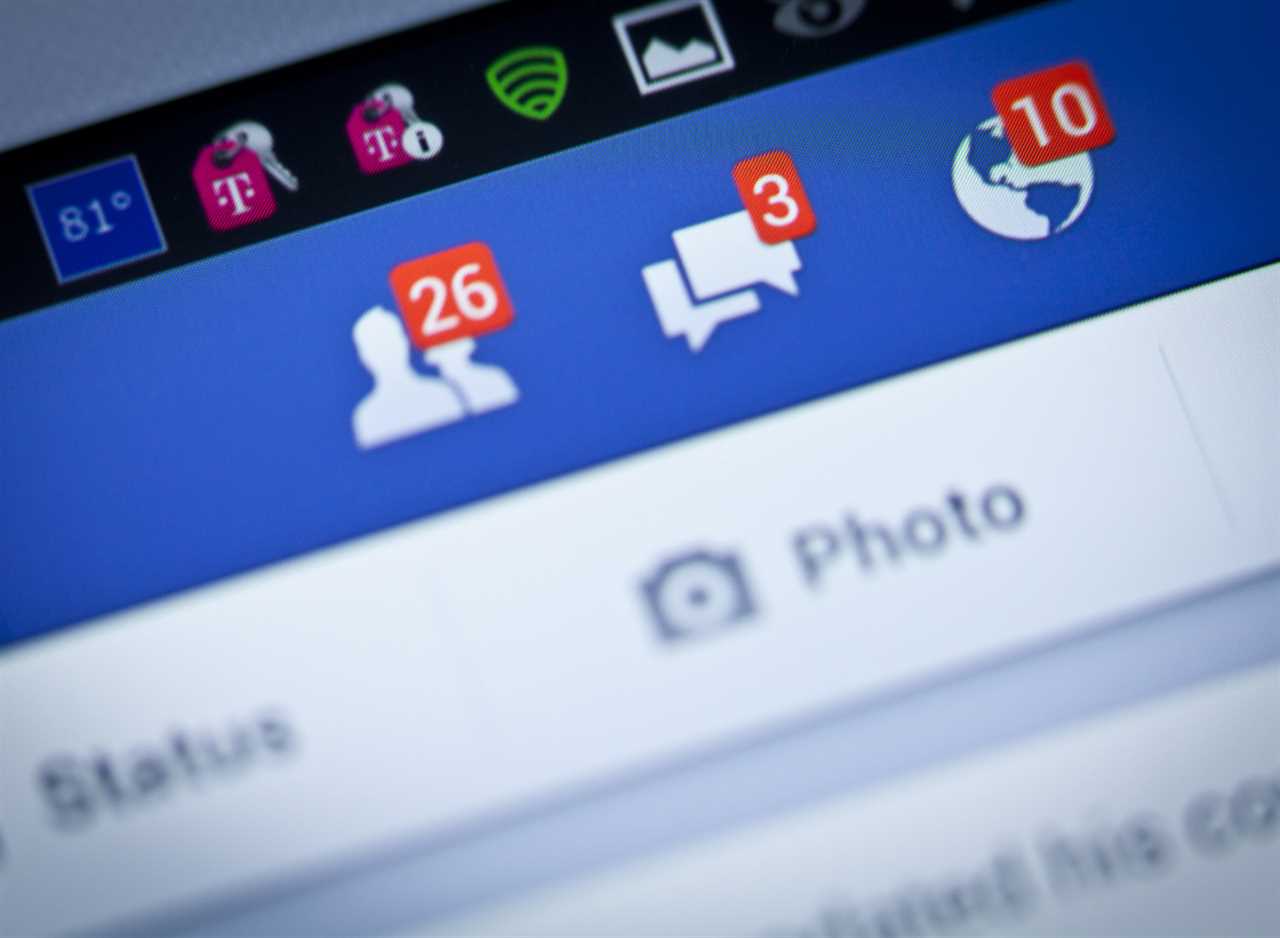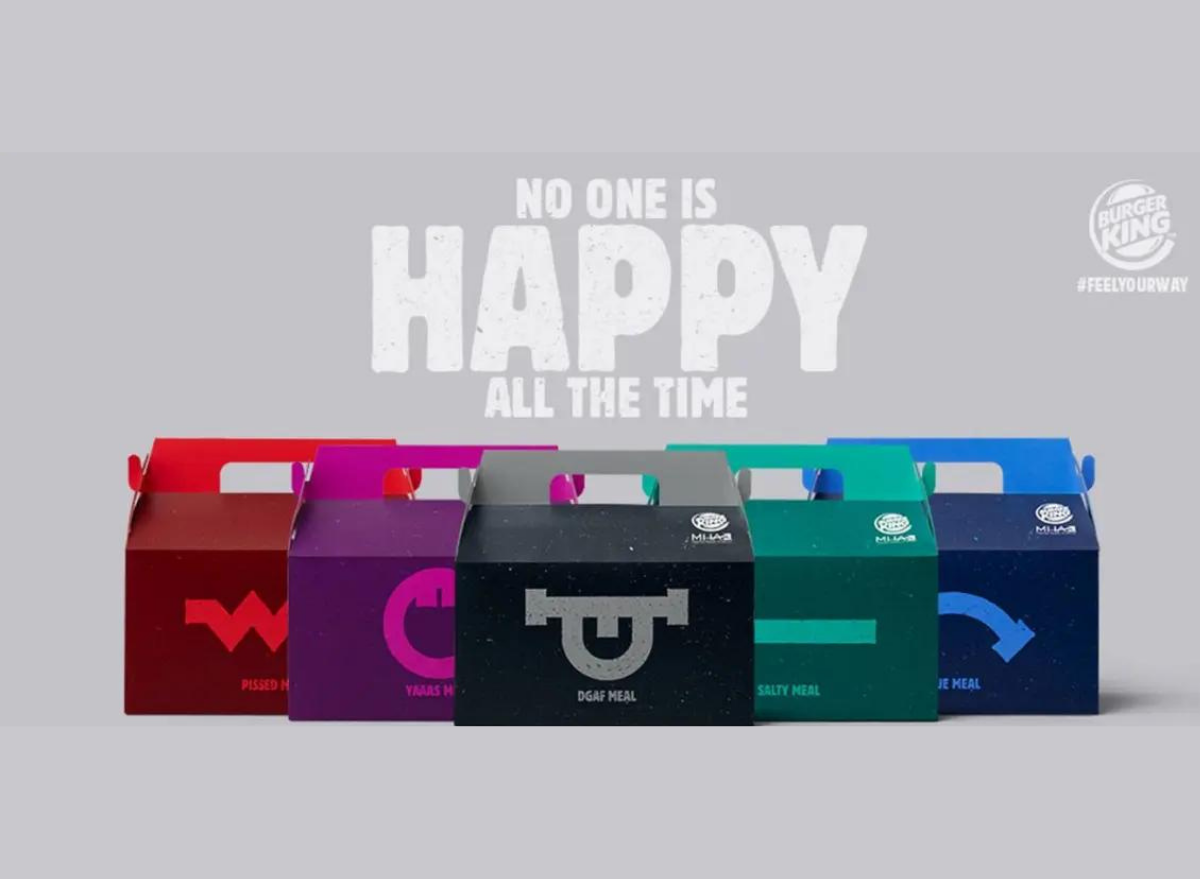"Any press is good press," seems to be Burger King's advertisement executive's motto, as the brand has seemingly taken the saying to heart over the years. Known for brash and controversial campaigns, the fast-food giant is no stranger to making headlines—both good and bad.
Bold advertising is part of the BK image and there's no shortage of promotional outrage from groups offended or shocked at what the restaurant chain has used in order to maintain its time in the spotlight. Don't expect the burger monarch to apologize, however, because at most, it seems the company will issue a "shrug" at anyone protesting their marketing methods.
Whether you're a fan of the brazen style or think they've crossed some lines, there is no chain quite like Burger King to fire up some burger controversy. Here are the most controversial campaigns that Burger King has debuted over the years. And next, don't miss the 8 Worst Fast-Food Burgers to Stay Away From Right Now.
Most restaurants and food service outlets would attempt to steer clear of feces when launching a new campaign. Burger King in Brazil, however, has embraced the potty humor for their new artificial ingredient-free dessert menu, which features the poop emoji as its mascot.
The ad itself looks to highlight the pure ingredients of a chocolate soft serve. The commercial states it's an "ice cream that looks like sh**, to remind people it's free from artificial sh**." The campaign is currently only available in Brazil, where it has received mixed reviews, but generated enough attention to be recognized as being "one of the best campaigns of the year," according to Restaurant Dive.
While it's not our thing, you doo-doo you, Burger King.
Related: Sales at This Major Burger Chain Are Slowing Down Dramatically
As far as whoppers go, one of Burger King's biggest ones had to do with starting beef with an entire gender. Women, that is.
Last year, Burger King UK decided the way to stir up some attention for their scholarships that helped get more women into the culinary arts was to go hard. In order to do this, they lead with the tweet, "Women belong in the kitchen." The ad also appeared in bold, front-page font on a full-page print ad in The New York Times. To nobody's surprise, women around the world were up in arms.
Many of those that regaled the advertisement cited that the company had just come off the heels of another "sexist" campaign that offered a lifetime supply of Whoppers to Russian women who got pregnant by World Cup players in 2018. During this questionable move, Burger King actually apologized, saying their free burger offer "does not reflect our brand or our values and we are taking steps to ensure this type of activity does not happen again," according to a Reuters article.
Whether Burger King means the activity of sexist ads or if it will no longer offer free burgers for babies remains to be seen.
In another attempt to claim their products are free of artificial preservatives, Burger King tried to grab eyeballs by showcasing a burger that was less than fresh. The moldy Whopper campaign was successful at making people look… if only with disgust.
From BK's point of view, if it molds, it's real. From everyone else's, the point was "ew." Although this ad didn't score high on customers reporting a craving for the burger after viewing the ad, the "Moldy Whopper" spot accumulated more than 1.7 million YouTube hits at press time following its Feb. 19, 2020 debut, according to Market Dive.
"The beauty of real food is that it gets ugly. It's common knowledge that real food deteriorates quicker because it is free of artificial preservatives," said Fernando Machado, global chief marketing officer for Burger King's parent company, Restaurant Brands International, in an interview with USA TODAY. "Instead of featuring our Whopper sandwich with the classic flawless and often too perfect photographic style typically used in fast food advertising, we decided to showcase something real, honest and that only Burger King could do."
While the burger did spark visceral reactions of revulsion, there was something eerily beautiful about the soft mold and blue hues that grew over the 28 days the burger was filmed. Not appetizing, but kind of pretty?
If there are two things that don't mix, it's flame-broiled burgers and the heated political landscape of Brexit in the UK. That still wasn't enough to stop Burger King from jumping in on the controversy.
Right in the middle of the EU referendum, the fast-food chain decided that a campaign poking fun at the vote to withdraw from the European Union was going to win over customers. Burger King got a hold of one of the Vote Leave's famous Brexit battle buses and slapped an advert on the side that read, "Another Whopper on the side of a bus. Must be an election." If that wasn't enough, the burger chain appeared to encourage "milkshaking" political officials (read: throwing milkshakes on them) from their UK Twitter account. The Tweet was soon banned from the UK's Advertising Standards Authority (ASA), according to Business Insider.
While Burger King isn't the first corporation to publicly choose sides on a political issue, it may be the first to create an entire campaign mocking one.
If anything, Burger King is creative in its advertising. So much so, it deserves some credit for really thinking outside the box… especially for its "OK Google" TV ad in 2017.
For this campaign, the company released a commercial that featured a restaurant employee speaking directly to the audience about the ad they were doing. During this, he mentions that the ad is only 15 seconds, which wasn't enough time to "explain all the fresh ingredients in the Whopper." Then, he leans into the camera and says, "I have an idea, OK Google, what is the Whopper burger?" thus prompting anyone with an at home Google Assistant to begin reciting the Whopper's Wikipedia page.
Annoying? Yes. Effective? Yes.

Burger King isn't a stranger to stirring the pot, but encouraging fans to put their relationships on the chopping block for free food was just going too far. What's worse? People actually did it.
Back in the Facebook heydays of 2009, Burger King created an app that offered a coupon for a free hamburger. There was a hidden price, however: you would have to delete ten of your Facebook in order to get it. "Now is the time to put your fair-weather Web friendships to the test," the Whopper Sacrifice site advertised.
In one of Burger King's more evil moments, the app would then show up on your news feed, broadcasting to everyone which friends were dumped in order to get 1/10th of a Whopper. In a moment of mass sacrifices, Burger King was able to get over 200,000 friends deleted by issuing 20,000 coupons before Facebook booted them off the social site, according to CNet.
What hasn't been accounted for is the untold damage to relationships that were not strong enough to withstand a free burger. At the very least, the decision came with free cheese.

In a stunt that was just as controversial as it was plain cringe-worthy, Burger King decided to "keep it real" with their "Real Meals." A mix between appealing to the youth, promoting mental health awareness, and sticking it to a competitor, the Real Meals mimicked McDonald's Happy Meals in shape, but were anything but happy.
These moody meals came in a collectable rainbow of emotions, including Pissed Meal, the Blue Meal, the Salty Meal, the DGAF Meal, and—strangely out of sync—the YAAAS Meal.
To no one's surprise, Twitter took the stage and ripped Burger King a new one, accusing the marketing stunt of trivializing mental illness during Mental Health Awareness Month. Additionally, very few customers felt the need to match their mood to their fast-food order, showing Burger King it had missed the mark yet again.
 HealthWellnessFitnessBeautyVideosPrivacy PolicyTerms And Conditions
HealthWellnessFitnessBeautyVideosPrivacy PolicyTerms And Conditions
